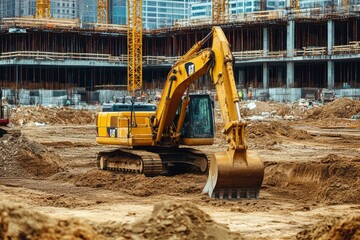When Altitude House Buyers are in the process of buying a home, they have many questions. These questions can arise before the home search, during a house hunt, and after an offer is accepted.
Owning a home is a great way to build wealth and invest in your future. It also gives you a sense of stability and belonging.
One of the most common ways to build wealth is by purchasing a home. Aside from the financial benefits, a house provides security and a sense of belonging. Buying a home is not for everyone, however, and you should only consider it if you are financially and personally ready for the commitment. Homeownership comes with high upfront costs and ongoing expenses such as property taxes, homeowner’s insurance, and maintenance. It also requires a long-term commitment and may require substantial equity investments. In addition to providing a sense of pride and accomplishment, owning a home can also provide an excellent source of income and reduce stress.
Unlike renting, mortgage payments are typically consistent over the life of the loan. This allows homeowners to predict their monthly housing costs, which can then be used to invest in other wealth-building vehicles like retirement plans or the stock market. In addition, a consistent credit history built through homeownership can help you secure better terms on other forms of debt.
Owning a home can be a great investment, especially in a rising real estate market. The value of a property increases over time, and homeowners are able to deduct the interest paid on their mortgage. Additionally, the property can be rented out to generate a steady source of income. Homeowners can also leverage their equity to purchase additional properties and expand their real estate portfolio.
Aside from building a solid financial foundation, owning a home can also set the stage for generational wealth. Many wealthy families have a tradition of passing down their wealth to future generations. This can include assets like real estate, life insurance, and 401(k) accounts.
In addition to leveraging equity to buy additional property, homeowners can use their home equity to make strategic renovations that can increase the value of the property and improve its energy efficiency. They can also consolidate their debt to improve their debt-to-income ratio and save money on interest charges. Lastly, homeowners can invest their equity in high-return real estate investments to build wealth over the long term. However, homeowners should be cautious about using their home as a form of debt and only borrow against the equity in their property to invest in opportunities that yield a significant return on investment.
It’s a more permanent place to live
The process of buying a home can be a stressful one, especially for first-time buyers. It’s important to do your homework and understand what you want from your next home. You should also be sure to consider your future needs, such as if you want to have children or pets in the near future. You should also visit the neighborhood and talk to residents. This will give you a better sense of the community and help you decide if it is the right place for you to buy a house.
While people’s basic requirements for their ideal home vary depending on their circumstances – commuters may want to be close to a station, families with children might look for good schools and young professionals might be after easy access to town or city centre – there are some attributes that most buyers will find desirable. Things like good on street parking, a garage or utility room might not seem crucial but are often a deal-breaker for many buyers and can add value to your home.
Having a security system is another popular feature, particularly as it helps reduce the risk of break-ins and theft. This is a relatively low cost addition that can make your property more appealing to buyers, especially when combined with other features such as a paved patio area and external lighting.
A grassy garden is another highly sought-after attribute, with the ability to enjoy al fresco dining and home workouts being particularly attractive to buyers. A spruced up garden can even increase the sale price of your property.
Before you begin the house hunting process, it’s essential to know how much you can afford. To determine this, you should review your income, debt and savings and compare them to your monthly living expenses. This will help you align your expectations with what’s realistically within your budget and ensure you can afford a mortgage without overstretching your finances.
It gives you a sense of belonging
The sense of belonging that comes with homeownership is one of the best things about it. Homeowners report feeling more satisfied with their lives than renters do, and it’s not hard to see why. Owning your own house provides you with a place to feel safe, secure, and proud of. It’s a feeling that money can’t buy.
If you’re ready to start looking for your first home, it’s important to take a step back and assess what you really want in a new home. You should determine your priorities and budget before you begin the search. For instance, if you have children in school, you might want to prioritize how close the homes are to their schools. Also, consider how much you want to spend on your mortgage each month. A good rule of thumb is to spend no more than 28% of your monthly income on housing and debt.
As you visit houses, remember that the seller’s real estate agent is usually present. It’s important to be respectful and say only positive things about the property. If you’re too enthusiastic about a particular home, the seller might think you’re eager to purchase it and could lower your offer. It’s also a good idea to avoid insulting the property or its decorations, especially when the current owner is around.
Once you’ve found a home that meets your criteria, prepare to submit an offer. Your realtor will help you with the process, including hashing out details like earnest money and contingencies. The amount of earnest money you put down is an indication that you’re serious about purchasing the property and won’t fall out of the deal after inspections.
It’s a great investment
Owning a home is an important step in building wealth. The equity that you build over the years can be used for many purposes, including paying for your children’s college education or buying a new car. But it’s important to do your research before making a purchase. Talk to a mortgage loan officer, join local Facebook groups, and attend property auctions to get a feel for the area. You should also check the crime rate and zoning regulations in the neighborhood. It’s also a good idea to visit the school and meet with your prospective neighbors. Taking all of these things into account will help you make a smart investment.
Buying a home is a major financial commitment, and it’s not right for everyone. If you can’t afford the monthly all-in costs of homeownership, renting may be a better option. To ensure that you’re financially ready for homeownership, start by reviewing your budget and eliminating credit card debt. Then, save for a down payment and establish an emergency fund to cover unexpected expenses. If you’re unsure whether homeownership is in your best interest, consider consulting a financial planner to see if it’s the right choice for you.
If you’re planning to sell your home, there are some features that will attract buyers and increase your chances of a quick sale. These include a secure security system, a paved patio, outdoor lights and bi-fold doors. In addition, a utility room and on street parking are also appealing to house buyers.
While millennials are divided over whether homeownership is necessary, it’s important to set realistic goals and stick to them. With a little bit of planning, you can be on your way to owning a home in no time!
Purchasing a home requires a substantial down payment, which is typically 20% of the total purchase price. If you’re financing your home with a conventional mortgage, you’ll need to put at least 10% down in order to avoid paying PMI (private mortgage insurance). To help you save for a down payment, you can open a savings account exclusively for this purpose and use online tools to track your progress.


